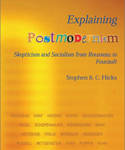How does one evaluate the significance of a time when (a) millions of voters seem drunkenly elated about a candidate, and (b) all of that society’s wise pundits dismissed the candidate’s possible success?
History helps by sending oracles about eras when those two phenomena were jointly in play.
* On the early 1930s in Germany, intellectual historian Sarah Bakewell comments, “Sometimes the best educated people were those least inclined to take the Nazis seriously, dismissing them as too absurd to last.”
* And philosopher Karl Jaspers compared Germany’s early 1930s to the eve of World War I: “It’s just like 1914, again this deceitful mass intoxication.”
Early 21st-century America is different culturally and institutionally from early 20th-century Germany in many ways, and even in their areas of similarity there are differences of degree. But it is striking that two similar factors are operative: The masses are energized, and the thoughtful are taken by surprise.
My view is that philosophy does its work far behind the scenes of political activism, establishing the principled framework within which a thousand points of practical detail are hashed out.
* On the role of two generations of German philosophy in the lead-up to National Socialism: Nietzsche and the Nazis.
*  On the role of two generations of postmodern philosophy in the lead up to contemporary America: Explaining Postmodernism: Skepticism and Socialism from Rousseau to Foucault.
On the role of two generations of postmodern philosophy in the lead up to contemporary America: Explaining Postmodernism: Skepticism and Socialism from Rousseau to Foucault.
